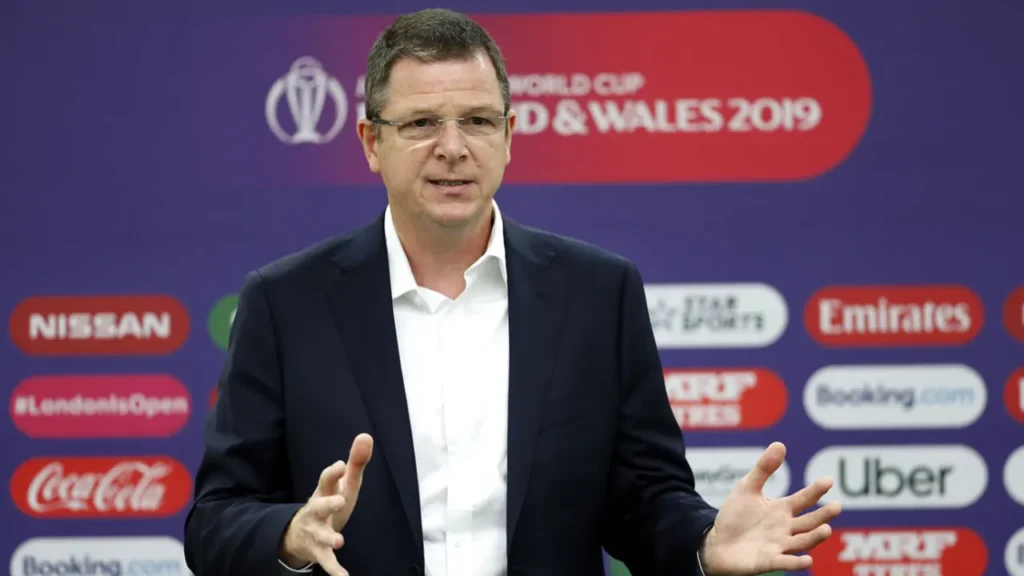As Alex Marshall, the head of the International Cricket Council’s (ICC) Anti-Corruption Unit (ACU), prepares to retire in November, he leaves behind a significant legacy in the fight against corruption in cricket. After serving for seven years, Marshall has issued a stern warning about the continued risks posed by “badly run” domestic T20 leagues, which he described as prime targets for corrupt elements looking to exploit the sport.
A Legacy of Integrity and Reform
- A Seven-Year Stint: Marshall, a former senior UK police officer, took on the role in 2017 as the ICC’s general manager of integrity. His responsibilities spanned anti-corruption, security, and anti-doping efforts within the ICC. Marshall decided to step down to spend more time with his family in England, leaving a legacy of strengthened anti-corruption measures across the cricketing world.
- Building Trust with Players: One of Marshall’s proudest achievements was the increased willingness of players to report corruption approaches. During his tenure, he observed a significant rise in the number of players coming forward with information, owing to the ACU’s efforts to disrupt corrupt activities and educate players about potential risks.
- Major Investigations: Marshall’s tenure was marked by several high-profile cases, including an extensive investigation into corruption in Sri Lanka. His team’s efforts led to stronger anti-corruption laws in the country, making Sri Lanka the first South Asian nation to criminalize certain match-fixing offenses.
High-Profile Cases and Sanctions
Marshall oversaw investigations that resulted in several prominent players being charged under the ICC’s anti-corruption code. Notable cases include:
- Sanath Jayasuriya (Sri Lanka): The former Sri Lanka captain was handed a two-year ban in 2019 for failing to cooperate with corruption investigations.
- Shakib Al Hasan (Bangladesh): In 2019, Shakib faced a ban across all formats for not reporting multiple approaches by a known corruptor in 2018.
- Heath Streak (Zimbabwe): The late Heath Streak was banned for eight years in 2021 after admitting to breaches of the anti-corruption code, including accepting a payment in bitcoin from a corruptor.
The Growing Threat of Poorly Managed T20 Leagues
As he prepares to leave his post, Marshall has emphasized the ongoing threat from lower-level T20 franchise leagues that are not adequately regulated. These leagues often fall outside the jurisdiction of the ICC’s ACU and are instead monitored by member country boards, which may not have the same stringent anti-corruption measures in place.
- A Route for Corruptors: According to Marshall, poorly managed T20 leagues present a vulnerability that corrupt elements are eager to exploit. While the higher levels of international cricket are well-protected, these lower-tier leagues provide an entry point for those looking to manipulate the game for financial gain.
- Cricket’s Ongoing Vigilance: Despite significant progress in combating corruption, Marshall’s message is clear: cricket administrators, players, and governing bodies must remain vigilant. As long as there is money to be made, corruptors will continue to search for weaknesses to exploit.
Moving Forward: What’s Next for Cricket’s Anti-Corruption Efforts?
The ICC’s efforts to curb corruption will continue beyond Marshall’s retirement. With greater education for players, stricter regulations in domestic leagues, and continued global cooperation, the battle against corruption in cricket remains a priority.
Marshall’s departure marks the end of an era for the ICC’s ACU, but his contributions have set a strong foundation for future anti-corruption work. His warnings serve as a reminder that while progress has been made, the fight against corruption in cricket is far from over.


